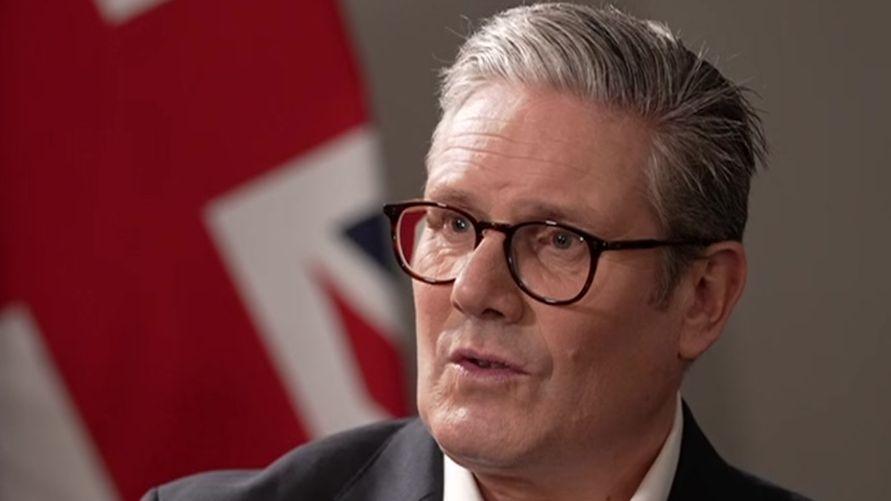We must learn lessons from history, King tells Commonwealth
"It is vital that we understand our history," King Charles told Commonwealth leaders
- Published
The King has told Commonwealth leaders "none of us can change the past" at a summit in Samoa.
But leaders could commit to learning from history and "finding creative ways to right inequalities that endure," he told the Commonwealth Heads of Government Meeting.
Diplomatic sources have told the BBC a number of the grouping's leaders want to start a "meaningful conversation" about whether the UK should pay reparations for its role in the slave trade.
The King, who did not directly address slavery, was speaking at the opening of the biennial summit for the first time as the head of the 56-member group.
UK Prime Minister Sir Keir Starmer said leaders at the summit "must acknowledge our shared history - especially when it's hard".
He said he understood "the strength of feeling" around calls for the UK to pay compensation for its role in the transatlantic slave trade.
What form could reparations for slavery take?
- Published24 October 2024
'We can't change our history' on slave trade - PM
- Published25 October 2024
No UK apology over slavery at Commonwealth summit
- Published19 October 2024
In his speech, King Charles said the "most painful aspects of our past continue to resonate".
"The right ways, and the right language" should be used to address inequalities, he said, adding: "It is vital therefore that we understand our history to guide us to make the right choices in the future."
"Let us choose within our Commonwealth family the language of community and respect, and reject the language of division."
When the King makes a speech as monarch he has to stick to the advice of minsters on areas of politics or policy.
So for issues such as reparations or an apology for slavery he must uphold the government's position.
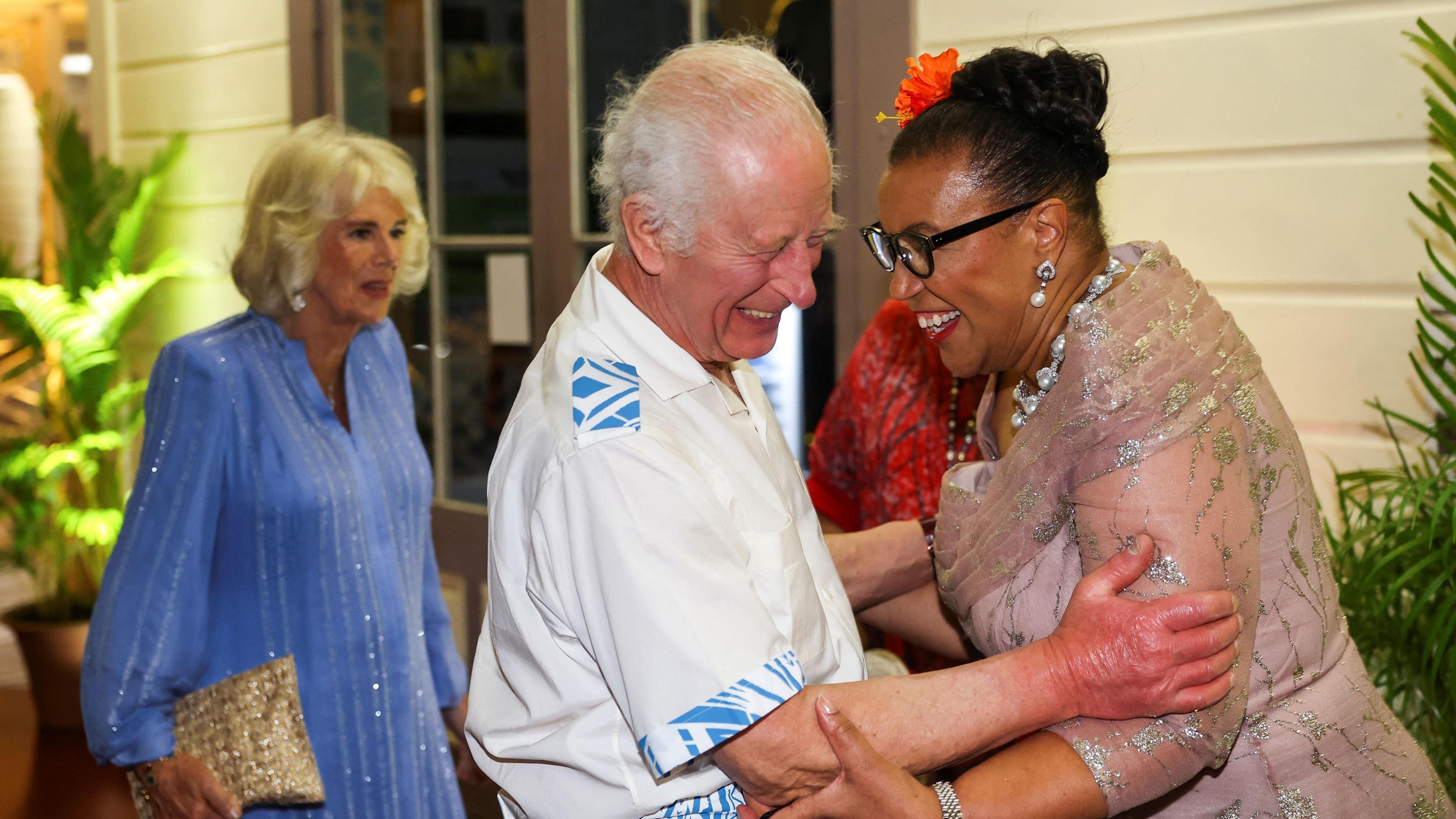
King Charles met Commonwealth Secretary General Patricia Scotland at the summit.
From 1500, the British government and the monarchy were prominent participants in the centuries-long slave trade, alongside other European nations. Historians estimate British ships transported over three million enslaved Africans, mostly to colonies in the Caribbean and North America.
Britain also had a key role in ending the trade, through Parliament's passage of a law to abolish slavery in 1833.
Some Commonwealth leaders have called for the UK to pay financial compensation, known as reparations, for its historic role in the slave trade.
A report published last year by the University of West Indies - backed by Patrick Robinson, a judge who sits on the International Court of Justice - concluded the UK owed more than £18tn ($23tn) in reparations for its role in slavery in 14 Caribbean countries.
But successive UK governments have resisted these calls. Ahead of the summit, Downing Street insisted the issue of reparations would not be on the agenda.
However, several Commonwealth leaders - particularly those from Caribbean countries - are expected to defy the UK and hold discussions on securing reparations from the UK.
The draft of the summit conclusion, seen by the BBC, says that the heads of government noted "calls for discussions" on reparations for transatlantic slave trade.
It says they "agreed that the time has come for a meaningful, truthful and respectful conversation towards forging a common future based on equity".
British officials succeeded in blocking plans for an entirely separate declaration on reparations, but at the moment are having to accept that some text on the subject will appear in the final communiqué.
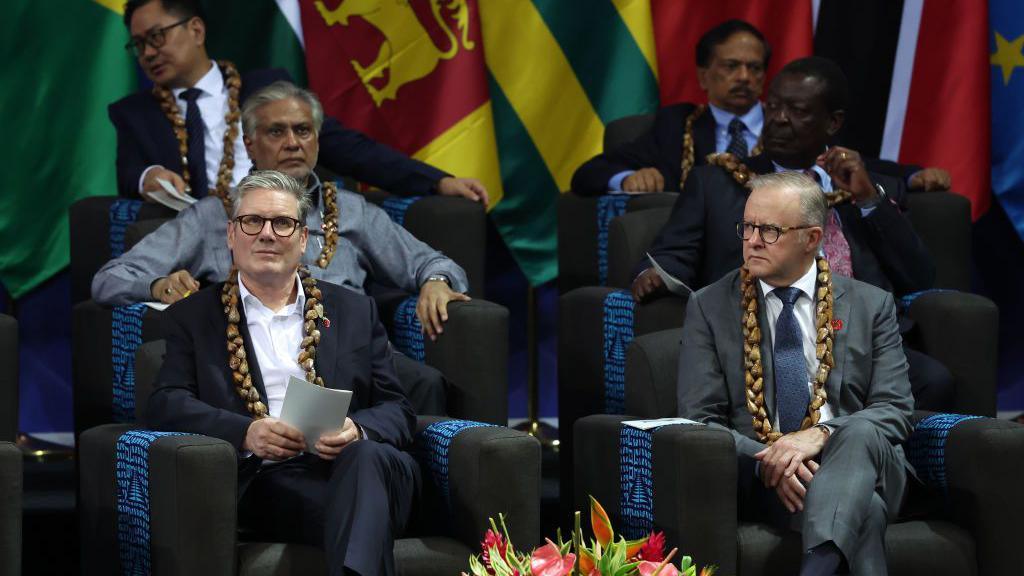
Sir Keir Starmer attended the opening ceremony of the summit in Samoa.
Starmer has told the BBC that slavery was "abhorrent" and that it is important to "talk about our history".
But he added he wanted the summit to focus on "today's challenges," such as climate change and boosting trade within the Commonwealth.
Chancellor Rachel Reeves ruled out paying reparations, saying: "That's not something that this government is doing." The government has also ruled out non-financial reparations.
But the foreign minister of the Bahamas said he hoped the UK would change its stance, and urged the government to offer an apology.
"It's a simple matter," Frederick Mitchell said. "It can be done, one sentence, one line."
Asked about apologising for slavery, Starmer said: "Of course, an apology has already been made in relation to the slave trade, and that's not surprising, it’s what we would expect."
The UK has never formally apologised for its role in the slave trade, though in 2007 then-Prime Minister Tony Blair said: "Well actually I have said it: We are sorry. And I say it again now."
'Exciting' moment for Samoa
The BBC spoke to several locals in Samoa about the summit.
Pisa Pisa Imoamoa, a teacher, was excited to see her country hosting such a large summit, describing it as "an honour".
"It’s good to see a lot of people from overseas, especially the King," she said.
"I think it’s good for the economy. It helps a lot of people, especially our people, by people coming here."
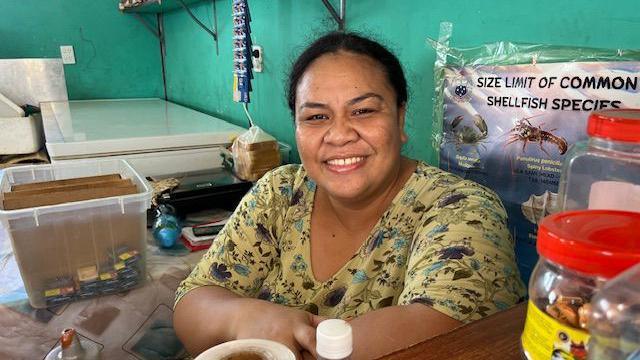
Lucy Upumoni welcomed the summit as a way of meeting new people.
She added that the summit gave smaller countries the chance to have their say on climate change, an issue that will disproportionately affect the small island nations that make up much of the Commonwealth.
"It’s really exciting for a small country like us having this first commonwealth meeting," says Lucy Upumoni, who owns a shop near the fish market on the waterfront in Apia.
"It’s really a great opportunity for us, to make friends with palagi guys [foreigners/non-Samoans] – it's an honour for us."
On reparations, Amanda Taavaomaalii, a teacher, said: "We have different opinions.
"It’s already in the past – nothing more to talk about."
The King also used his speech to highlight climate change, saying: "We are well past believing it is a problem for the future.
"It is already undermining the development gains we have long fought for."
Related topics
- Published24 October 2024
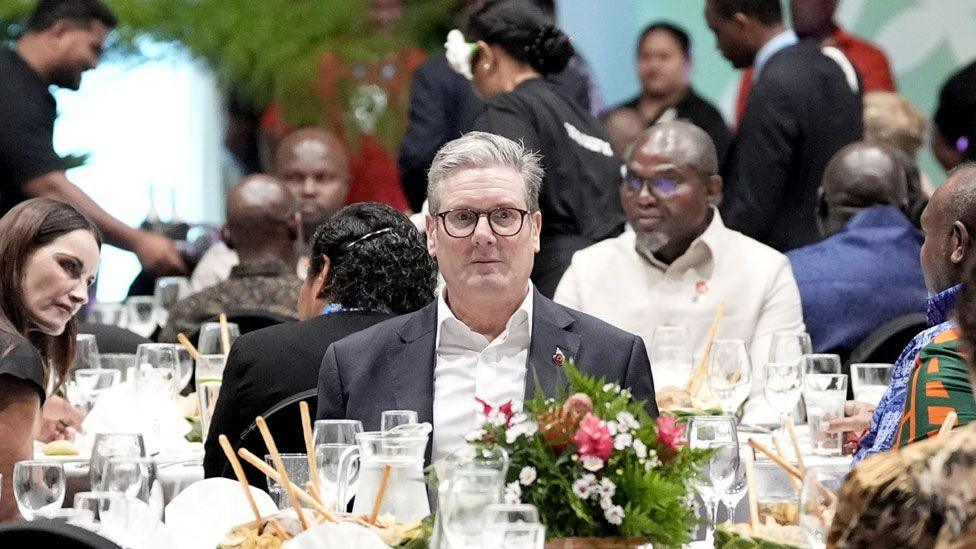
- Published24 October 2024
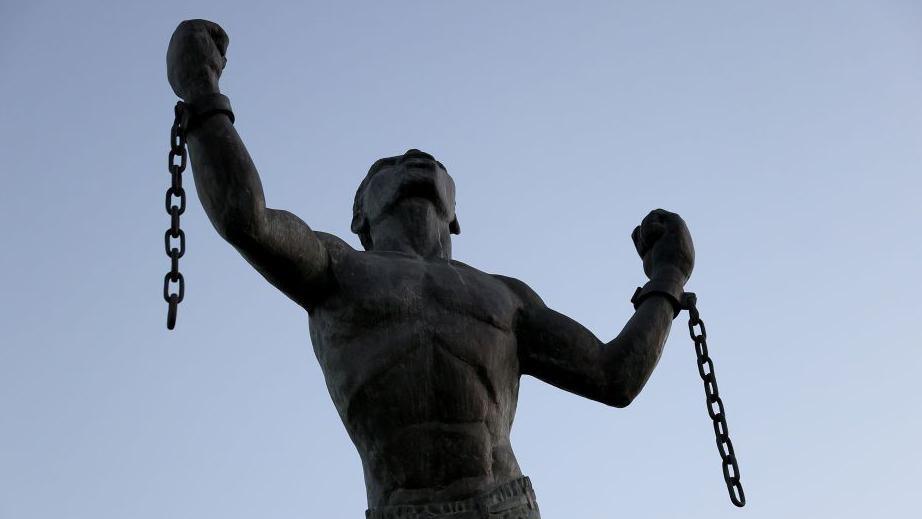
- Published25 October 2024
